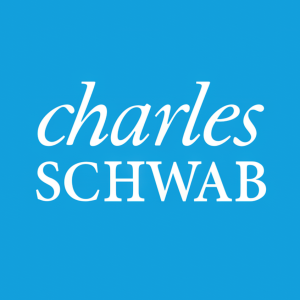Schwab 401(k) Study: Gen Z Wants to Retire by 61, but Reports the Greatest Financial Stress, Savings Obstacles
Younger workers most willing to forgo a raise for better benefits, flexible work arrangements
“Younger workers are still finding their financial footing in an economic environment that is challenging for everyone. They are just starting out, so it’s no surprise that they may feel greater financial pressure, especially with such an ambitious timeline to retirement,” said Brian Bender, Head of Schwab Workplace Financial Services. “However, saving for retirement and paying the bills doesn’t need to be an ‘either/or’ situation. You can work toward multiple financial goals at once. This is especially important for younger workers to remember as student loan payments resume and become yet another monthly expense for many.”
Despite the financial challenges that younger workers are facing, they are more willing than older workers to forgo a salary raise for better benefits or more flexible work arrangements, such as a hybrid or remote setting or more flexible hours.
Willingness to Forgo Salary Raise For…
|
Better Benefits |
More Flexible Work Arrangement |
Gen Z |
|
|
Millennials |
|
|
Gen X |
|
|
Boomers |
|
|
Managing financial stress
More than half of all workers say that their employer did something in the past year that helped them manage their financial stress. Gen Z (
“It’s great that employers are already playing such a big role in helping workers manage financial stress,” said Marci Stewart, Director of Communications Consulting and Participant Education at Schwab Workplace Financial Services. “Employers should continue to focus on areas that are challenging workers the most when it comes to financial wellness and retirement saving. That can go a long way toward helping to boost retention and slow job hopping among younger workers.”
Gen Z - The Advice Generation
More than any other generation, Gen Z workers think their financial situation warrants advice from a professional (Gen Z (
I would like personalized investment advice for my 401(k) |
|
I don’t know what investments to choose for my 401(k) |
||
Gen Z |
|
|
Gen Z |
|
Millennials |
|
|
Millennials |
|
Gen X |
|
|
Gen X |
|
Boomers |
|
|
Boomers |
|
Gen Z is already tapping into several sources for advice more proactively than their older peers –
The survey also found Gen Z (
I am likely to follow recommendations from a human financial professional |
|
I am likely to follow computer-generated recommendations |
||
Gen Z |
|
|
Gen Z |
|
Millennials |
|
|
Millennials |
|
Gen X |
|
|
Gen X |
|
Boomers |
|
|
Boomers |
|
“It’s encouraging that younger workers are so open to different sources of human and digital advice, and that they are actively seeking it out,” said Stewart. “When workers engage, that’s when a professional can really help them with decision-making and financial next steps. We know having a plan in place boosts employee confidence and can lead to better outcomes.”
About the survey
This online survey of 1,000
About Charles Schwab
At Charles Schwab, we believe in the power of investing to help individuals create a better tomorrow. We have a history of challenging the status quo in our industry, innovating in ways that benefit investors and the advisors and employers who serve them, and championing our clients’ goals with passion and integrity.
More information is available at aboutschwab.com. Follow us on Twitter, Facebook, YouTube, and LinkedIn.
Disclosures
Workplace Financial Services is a business enterprise which offers products and services through Schwab Retirement Plan Services, Inc.; Schwab Stock Plan Services; and Designated Brokerage Services. Schwab Retirement Plan Services, Inc., provides recordkeeping and related services with respect to retirement plans. Schwab Stock Plan Services is a division of Charles Schwab & Co., Inc. providing equity compensation plan services and brokerage solutions for corporate clients. Schwab Designated Brokerage Services (DBS), a division of Charles Schwab & Co., Inc., provides technology solutions for corporate clients with regulatory requirements to monitor employee security transactions. Schwab Retirement Plan Services, Inc., and Charles Schwab & Co., Inc. (“Schwab”) (member SIPC, www.sipc.org), are separate but affiliated entities, and each is a subsidiary of The Charles Schwab Corporation.
1023-3ZV0
View source version on businesswire.com: https://www.businesswire.com/news/home/20231011994442/en/
Mike Peterson
Charles Schwab
330-908-4334
mike.peterson@schwab.com
Carly Taylor
The Neibart Group
973-618-6993
SchwabRPS@neibartgroup.com
Source: The Charles Schwab Corporation








